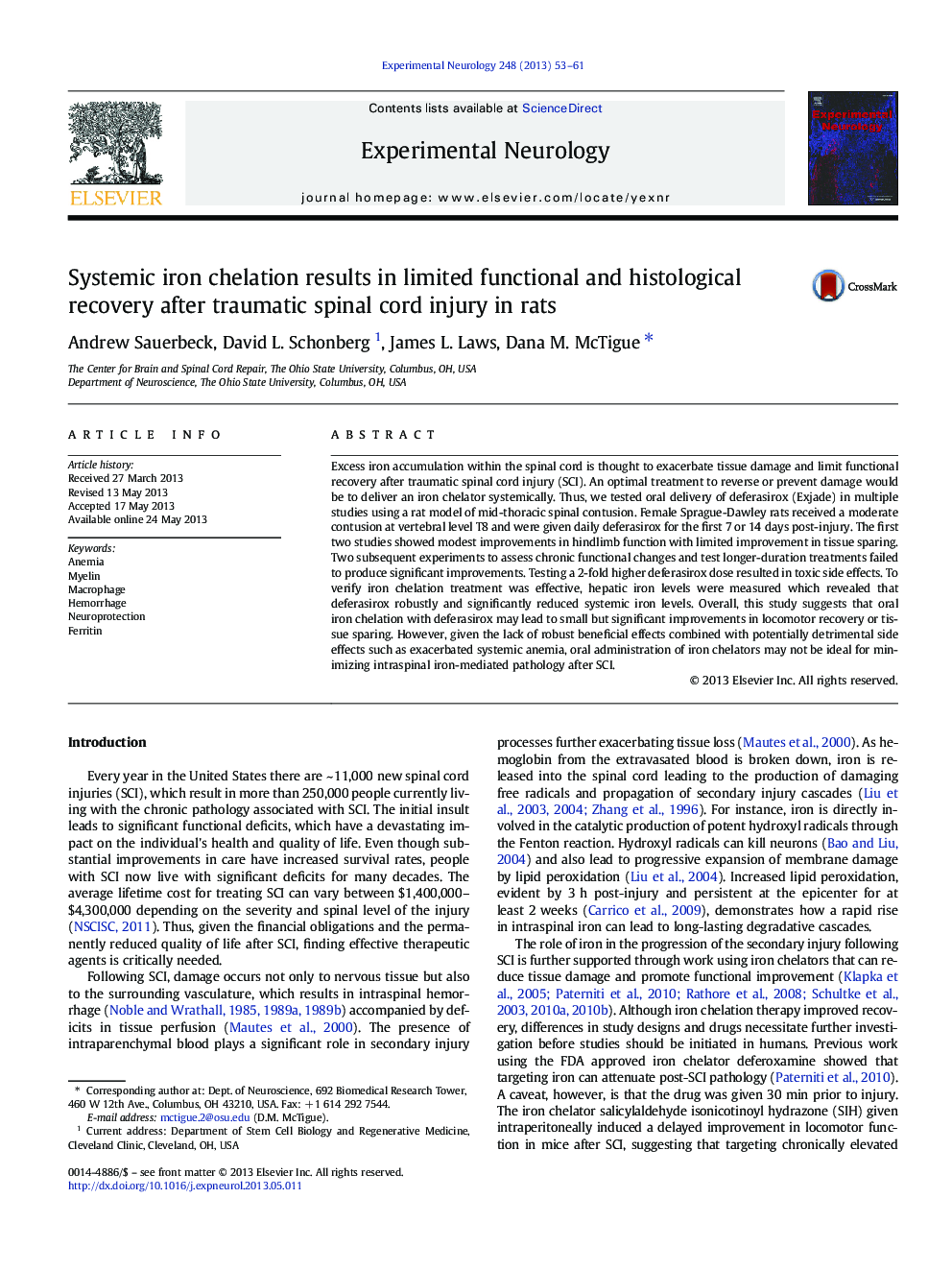| کد مقاله | کد نشریه | سال انتشار | مقاله انگلیسی | نسخه تمام متن |
|---|---|---|---|---|
| 6018034 | 1580184 | 2013 | 9 صفحه PDF | دانلود رایگان |
- Iron accumulates following spinal cord injury and remains elevated chronically.
- Oral deferasirox significantly reduces peripheral but not intra-spinal iron.
- Limited locomotor recovery and tissue sparing occur following deferasirox treatment.
- Oral deferasirox is not an effective treatment for traumatic spinal cord injury.
Excess iron accumulation within the spinal cord is thought to exacerbate tissue damage and limit functional recovery after traumatic spinal cord injury (SCI). An optimal treatment to reverse or prevent damage would be to deliver an iron chelator systemically. Thus, we tested oral delivery of deferasirox (Exjade) in multiple studies using a rat model of mid-thoracic spinal contusion. Female Sprague-Dawley rats received a moderate contusion at vertebral level T8 and were given daily deferasirox for the first 7 or 14Â days post-injury. The first two studies showed modest improvements in hindlimb function with limited improvement in tissue sparing. Two subsequent experiments to assess chronic functional changes and test longer-duration treatments failed to produce significant improvements. Testing a 2-fold higher deferasirox dose resulted in toxic side effects. To verify iron chelation treatment was effective, hepatic iron levels were measured which revealed that deferasirox robustly and significantly reduced systemic iron levels. Overall, this study suggests that oral iron chelation with deferasirox may lead to small but significant improvements in locomotor recovery or tissue sparing. However, given the lack of robust beneficial effects combined with potentially detrimental side effects such as exacerbated systemic anemia, oral administration of iron chelators may not be ideal for minimizing intraspinal iron-mediated pathology after SCI.
Journal: Experimental Neurology - Volume 248, October 2013, Pages 53-61
